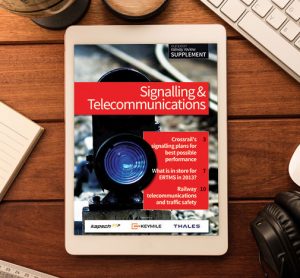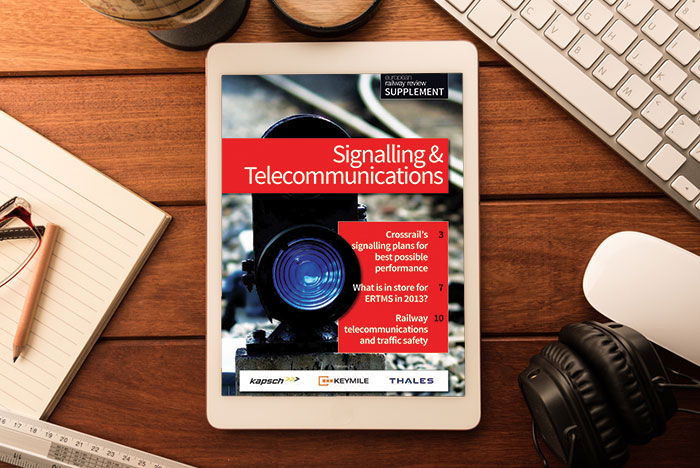Signalling & Telecoms supplement 2013
Inthis supplement: Crossrail’s signalling plans for best possible performance; What is in store for ERTMS in 2013? (Pio Guido Head of ERTMS Unit, European Railway Agency); Railway telecommunications and traffic safety (José Pestana Neves, Adviser to the Board of Directors, Refer Telecom and Member of the UIC European Radio Implementation…





